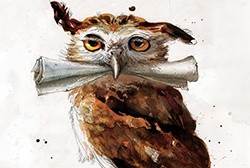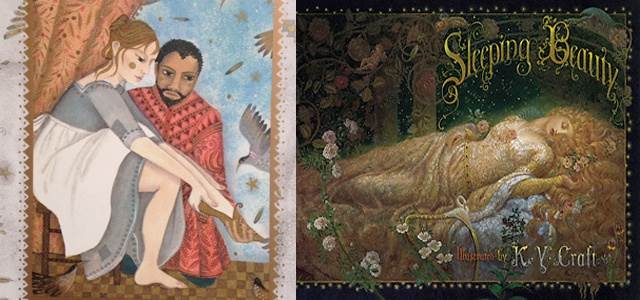Homework for Hogwarts – a short history of magic
Published on: 04 February 2016 Author: Sophie Offord
Know your abracadabra from hey presto in our Pottered guide to magic spells.

All Harry Potter fans know that A history of magic is a set text at Hogwarts. But if there were such a tome, then what would it teach us?
Fear not. Rush right to the top of Professor Binns' class with this (very) short history of nearly everything to do with magic.
The first magic spell?
ABRACADABRA.
Besides being massively fun to say, this is probably the most known 'magic word'.
Over the last 200 years, it has joined the ranks of 'hey presto', 'shazam' and 'alakazam'. It's something a bit silly, adding drama to a magic trick.
But this ancient word was once thought to hold tremendous power.
Although no-one really knows what it means, people have been saying it for centuries. It comes from Latin and was first spotted in a 2nd-century poem by Quintus Serenus Sammonicus. He was doctor to the Roman emperor, Caracalla - and thought 'abracadabra' could cure a fever.
Over time, others used 'abracadabra' to ward off sorcery or illness. Many wore the word as a charm or sewed into their clothes. They spelled it over and over, in the shape of a triangle - like this:

Once upon a spell
Many 'ye olde' stories are full of spells and potions.
For instance, who can forget the 'song of the witches' in Shakespeare's Macbeth?
Double, double toil and trouble; Fire burn and caldron bubble. Cool it with a baboon's blood, Then the charm is firm and good.
As well as scoring high on creepiness, these witches are three of the most important characters in the play: so important that many actors still can't even whisper the word 'Macbeth' in a theatre. They think doing so will restore the witches' curse and they'll come to a sticky end on stage. The spell lives on...
Fairy tales, of course, are also full of spells and potions. The Brothers Grimm told stories of fairy godmothers (Cinderella), evil fairies who curse babies (Sleeping Beauty), and apples poisoned by dark magic (Snow White).
Although these became popular in the 19th century, academics now think they are much older. Many can be traced back thousands of years, some even to prehistoric times - and they pop up in different versions all over the world.

Charms for children
Children's books haven't lost their magic over the last 100 years. In fact, there are more witches and warlocks than ever.
Here are just a few favourites:
- The Lion, the Witch and the Wardrobe by CS Lewis (1950). What's more magical than a cupboard that leads to Narnia?The White Witch's spell over this land casts it forever in winter. Lucy later gets a healing potion from Father Christmas.
- A Wizard of Earthsea by Ursula le Guin (1968). Ged joins the school of wizardry and shows a lot of skill. But he studies magic beyond his level, ignoring the warnings about respecting the Balance.
- The Worst Witch by Jill Murphy (1974). Poor Mildred Hubble is the worst witch at school. She is rubbish at spells and also rather clumsy - knocking all the girls down from their broomsticks in one memorable scene.
Tim Curry gives the young witches a rousing spooky song in the 1986 film of The Worst Witch
- George's Marvellous Medicine by Roald Dahl (1981). A warning to bossy grannies everywhere. George makes various 'medicines' for his grandma, made out of everything from gin to deodorant. One makes her disappear altogether.
- Spells by Emily Gravett (2009). A hopeful frog tries to turn himself into a handsome prince by piecing together the torn pages of a spell book. Prepare for lots of laugh-out-loud moments.
- Witchworld by Emma Fischel (2014). Witches get the modern treatment - no old-fashioned wands or broomsticks, here. It's all shiny Spellsticks and super-whizzy Skyriders - until the Ghouls turn up.
- The Potion Diaries by Amy Alward (2015). The Princess of Nova accidentally poisons herself with a potion meant for her crush - and falls crown-over-heels in love with her own reflection.
Cast your own spell
So, it looks like words have long been seen as pretty powerful stuff.
True, saying 'izzy wizzy' probably won't turn your friend into a frog - just like 'avada kedavra' isn't really a killing curse.
But words do spell out worlds like Harry Potter, which feel so real, we can't believe that they're not.
That's right. Just by reading or writing, words can take you to another country or put you in someone else's shoes - maybe even the shoes of a boy wizard.
Sounds like magic, doesn't it?
Topics: Fairy tale, Fantasy, Magic, Features





